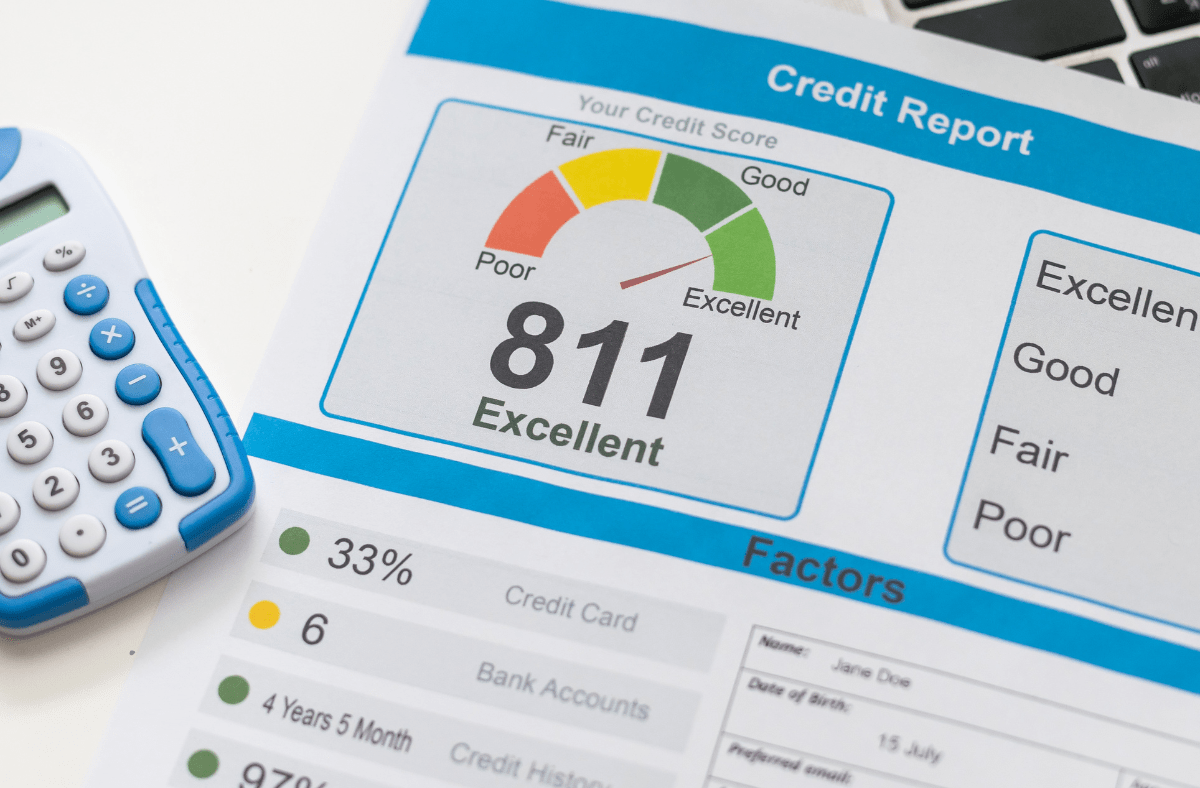How to improve your credit score if you’re planning to buy a home in Belfast or anywhere else in Northern Ireland, your credit report is one of the most important factors lenders will consider when assessing your mortgage application. A good credit score can help you secure better mortgage rates, while a poor score may limit your options. It’s crucial to understand the elements that impact your credit score so you can manage them wisely and improve your chances of getting the best deal. If you want to know how to improve your credit score read on.
Below are five key factors that affect your credit score and how to improve your credit score to ensure you’re in the best possible position when applying for a mortgage:
1. Payment History: The Foundation of Your Credit Score
Your payment history is the most significant factor that affects your credit score. This includes any records of timely or missed payments on credit cards, loans, mortgages, and other financial obligations. Lenders look closely at how consistent you’ve been in making payments on time.
Late payments, missed payments, or defaults can stay on your credit report for years, negatively impacting your score. To avoid this, always aim to pay bills on time. Setting up direct debit payments for monthly bills is a great way to ensure you never miss a payment. Even a single late payment can haunt your credit history, so paying your bills on time is essential for maintaining a strong score.
2. Credit Usage: How Much of Your Available Credit Are You Using?
Your credit usage, or the percentage of your available credit that you’re using, plays a significant role in determining your credit score. Experts recommend keeping your credit utilisation below 25%. For example, if you have a credit card with a £1,000 limit, try to keep your balance below £250.
Using too much of your available credit can indicate financial strain and make you appear more of a risk to lenders. On the other hand, underutilising credit can demonstrate your ability to manage finances responsibly. Try to pay off your credit balances regularly to maintain low credit usage to improve your credit score.
3. Length of Your Credit History: The Longer, The Better
Lenders value experience when it comes to managing credit. The longer you’ve had credit accounts, the more confident they’ll be in your ability to handle future debt. Your credit score will reflect your credit history, and a long, positive history will often result in a better score.
That doesn’t mean you should keep every old account open indefinitely. However, the older your credit accounts, the more they’ll demonstrate to lenders that you’ve been able to manage credit responsibly. If you’re just starting your credit journey, it’s a good idea to build a history with a few accounts over time rather than rushing to open multiple new accounts all at once.
4. Address History: Keeping Your Information Up to Date
A surprising factor that can influence your credit score is your address history. When you move, it’s important to update your details on the electoral register, as this helps lenders confirm your identity and residency. If you’ve moved addresses but haven’t updated your registration, this could negatively affect your score.
Inaccuracies in your address history can make you appear less reliable to lenders. Make sure that all your details are up to date, not just with the electoral register, but also with any credit providers you work with. A consistent address history can help improve the accuracy of your credit report and boost your credit score.
5. Recent Credit Applications: Too Many Can Hurt Your Score
Each time you apply for credit—whether it’s a new credit card, personal loan, or even a mortgage—the lender will carry out a “hard” credit check. While these checks are necessary, they can cause a temporary drop in your credit score. Lenders see multiple hard checks in a short period as a sign of financial distress or over-reliance on credit, which can make you look risky to other lenders.
If you’re planning to apply for a mortgage, avoid making other credit applications in the months leading up to your mortgage application. Instead, only apply for new credit if absolutely necessary. This will ensure your score doesn’t take a hit from multiple inquiries, improving your chances of getting approved for a mortgage.
How to Improve Your Credit Score : Things Not To Do
While it’s important to know what actions will positively affect your credit score, it’s equally essential to avoid common mistakes that could harm your score. Here are a few things you should avoid doing:
- Don’t apply for new credit cards to increase your credit limit. Many people think opening new credit cards will improve their score by increasing their available credit, but multiple hard checks can actually hurt your score in the short term.
- Don’t take out loans just to improve your credit mix. While having different types of credit (like a mortgage, personal loan, and credit cards) can be beneficial, opening a loan simply to diversify your credit mix can backfire if you’re not able to manage it well.
- Don’t carry a balance just to build credit. Carrying a balance on your credit card in an effort to build credit can lead to high interest charges. Paying off your balance in full each month is a better strategy for both maintaining a good score and avoiding unnecessary debt.
- Don’t cancel your credit card after you’ve paid it off. Many people mistakenly believe that closing a credit card will help their score, but doing so can reduce your available credit and lower your credit score. If you don’t want to use the card, it’s better to leave it open and avoid using it rather than cancelling it outright.
Take Control of Your Credit Score for a Better Mortgage Rate
Understanding and managing your credit score is crucial when applying for a mortgage. By focusing on timely payments, using credit wisely, maintaining a long credit history, updating your address details, and avoiding excessive credit applications, you can ensure your credit score is as healthy as possible. Once you take steps to improve your credit score you should start to see positive changes.
If you’re preparing to apply for a mortgage, it’s always worth checking your credit score beforehand. If your score needs improvement, take the time to address the factors outlined in this post, and give yourself the best chance to secure favourable mortgage terms. By using this guide on How To Improve Your Credit Score, you can ensure you are in the best possible position when it comes to applying for a mortgage.
For more personalised advice on mortgages and how your credit score can affect your application, speak with an expert mortgage advisor.


